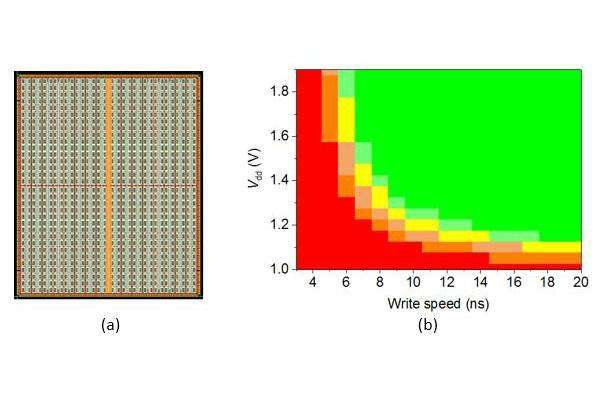Researchers from the Tohoku University in Japan report they have successfully developed 128Mbit spin-transfer torque magnetoresistive random access memory (SST-MRAM). The development paves the way for mass-production of the high-speed, non-volatile memory. Write speeds are specified at 14ns and initially the memory will be used for embedded chips.

STT-MRAM consumes little power and retains data even when the power is off. The researchers also state the memory is able to achieve high transfer speeds. Previously only chips with capacities of 8Mb to 40Mb were available, the 128Mbit chip is considered a breakthrough that makes it more practical. Three large semiconductor manufacturing plants have announced they will start mass-production of the chips in 2019.
Spin-Transfer Torque (STT) MRAM is well suited for storage in many mainstream applications. The memory delivers the high performance of DRAM and SRAM but is non-volatile, has the low power and low cost of flash memory, scales well below 10nm, and leverages existing CMOS manufacturing techniques and processes.
SST-MRAM technology is hard to understand, a website explaining the memory describes it as, “the spin of the electrons is flipped using a spin-polarized current. This effect is achieved in a magnetic tunnel junction (MTJ) or a spin-valve, and STT-MRAM devices use STT tunnel junctions (STT-MTJ). A spin-polarized current is created by passing a current though a thin magnetic layer. This current is then directed into a thinner magnetic layer which transfers the angular momentum to the thin layer which changes its spin.”
In the now accounted 128Mbit chip, the researchers measured a write speed of sub array. As a result, high-speed operation with 14ns was demonstrated at a low power supply voltage of 1.2 V. To date, this is the fastest write speed operation in an STT-MRAM chip with a density over 100Mb in the world.
















